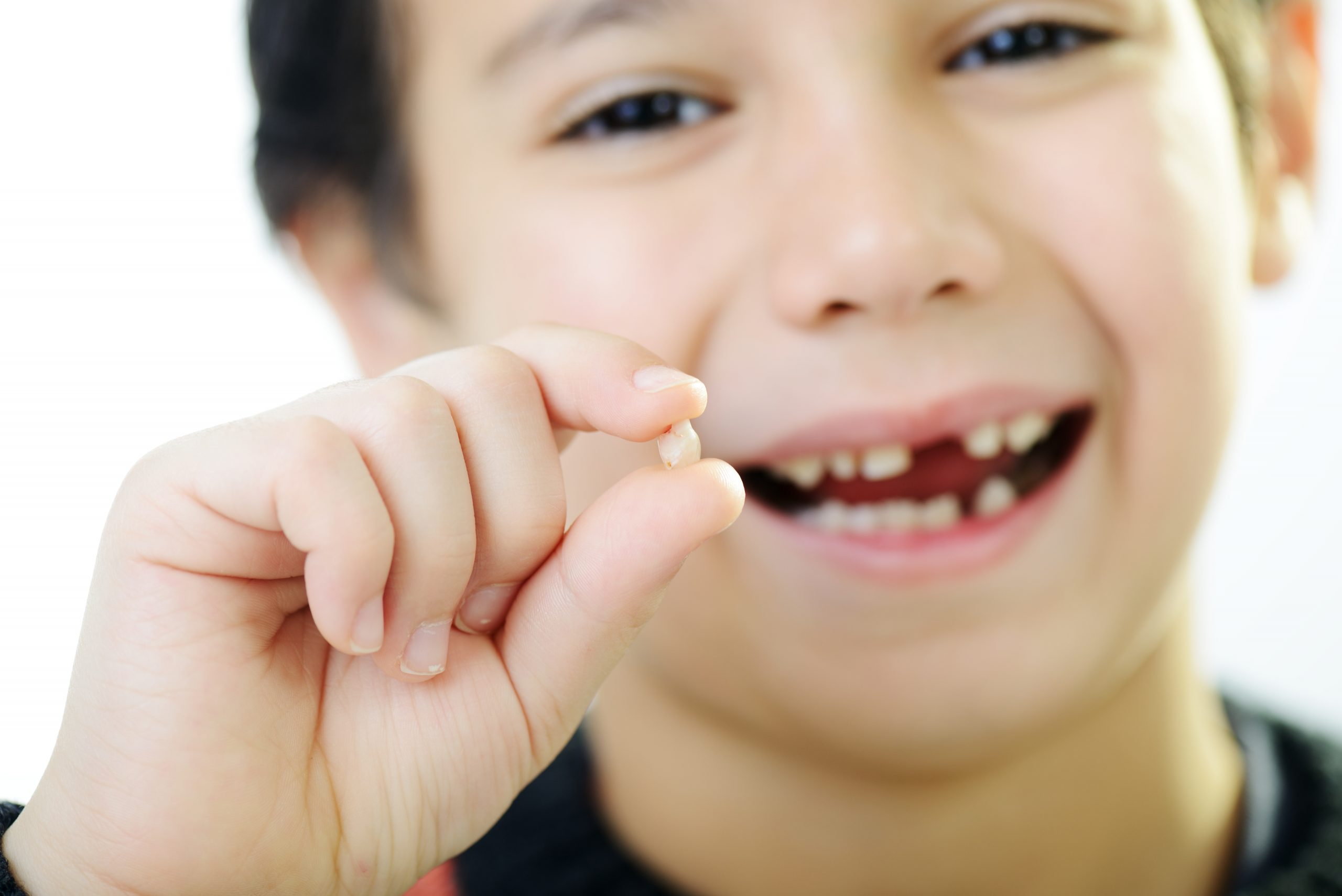If your children are coming to the age where they’re about to lose their baby teeth I may have some questions on how the process works. We will review why children’s teeth fall out, what to do when the child’s tooth falls out, and care tips for after the tooth falls out.
Why do baby teeth fall out?
Losing teeth is a natural process for children. Children’s primary teeth also known as deciduous teeth start to be replaced by permanent teeth between the ages of six through 12 on average. Your child’s baby teeth are placeholders for their adult permanent teeth. While their jaw grows the root area of the tooth allows the permanent to a place to grow and break through the gums. As the permanent teeth grow through the root area baby teeth will loosen and fall out.
What to do when your child’s tooth falls out
Once your child gets a loose tooth it’s important to not try to pull a loose tooth out when it’s ready to come out it will fall away without a problem. Once the tooth falls out it’s important to help your child maintain good oral care. Encourage them to brush your teeth regularly and eat healthy snacks and avoid sugar. It’s important to still visit the dentist during these formative dental years. And if your family enjoys a visit from the tooth fairy you can take special time to celebrate us.
Care tips for after the tooth falls out
Losing a tooth can be a interesting and sometimes difficult time for your child. It’s natural for your gums to bleed when losing a tooth. Have a conversation with your child before they lose their tooth about what may happen and that it will be perfectly fine. Rinsing with warm water will help speed up the process. A warm washcloth can also help. Your Child should continue their brushing habits however they should not brush too hard on the area of the lost tooth.
Eruption pattern in children
Each child is unique, but these are the general ages for permanent teeth to come in:
- First molars – Around 6 to 7 years old
- Central incisors – Around 6 to 8 years old
- Lateral incisors – Around 7 to 8 years old
- Canine teeth – Around 9 to 13 years old
- Premolars – Around 9 to 13 years old
- Second molars – Around 11 to 13 years old
- Third molars (wisdom teeth) – Around 17 to 21 years old if they come in at all







